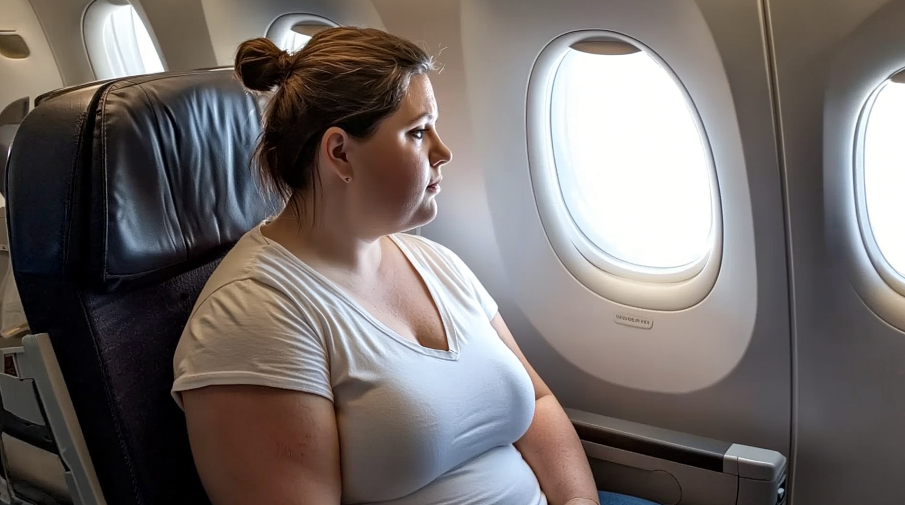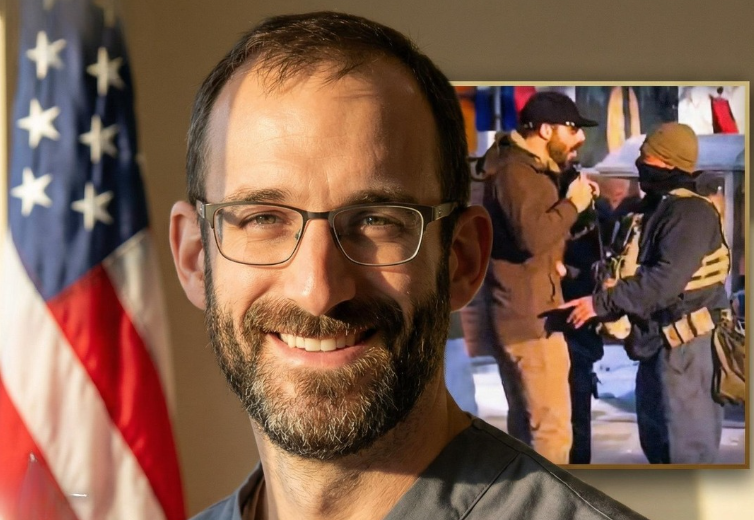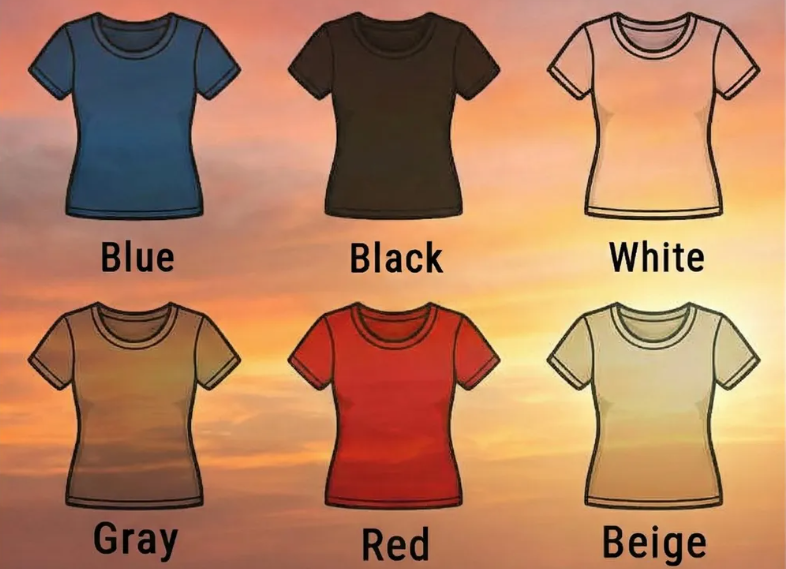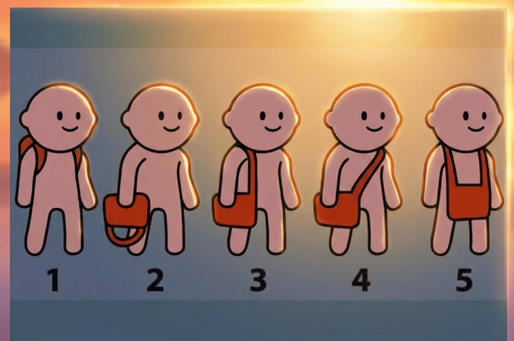I never thought I’d have to battle for the right to consume a protein bar on an aircraft.
But when confronted with entitled parents who prioritized their son’s tantrum-free travel over my health, I refused to give in.
What occurred next had the entire row speechless.
My name is Elizabeth, and I enjoy practically everything about my life.
I’ve worked hard to establish a successful profession as a marketing consultant, despite the fact that it occasionally requires me to live out of a suitcase.
Last year alone, I visited 14 locations across the country, assisting businesses in transforming their marketing strategies.
Frequent flier miles are a pleasant bonus, and hotel breakfast buffets have become my second home.
“Another trip?” “You’re like a modern nomad,” my mother quips as I contact her from yet another airport terminal.
“It’s worth it,” I constantly assure her.
It is.
I’m creating something worthwhile.
Financial security, professional respect, and the lifestyle I’ve always desired for myself.
Everything in my life runs perfectly except for one recurring complication: type 1 diabetes.
I was diagnosed when I was 12, and it has remained my constant companion ever since.
Type 1 diabetes occurs when my pancreas fails to produce insulin, the hormone that regulates blood sugar.
Without insulin shots and close monitoring, my blood sugar can skyrocket or plummet dangerously low.
Both eventualities could end me in the hospital if I’m not careful.
“It’s part of who you are,” my endocrinologist explained years ago.
“Not a limitation, a consideration.”
I have lived by those words.
I keep glucose pills in every purse, set insulin dosage reminders, and always bring extra snacks when I travel.
My disability does not define me, but it necessitates caution, particularly when I am traveling.
Fortunately, most people in my life understand.
My boss ensures that meetings include regular breaks.
My friends don’t mind if I stop for a snack.
Even flight attendants typically understand when I explain why I require ginger ale immediately, not in 20 minutes when they arrive at my row.
However, not everyone comprehends it.
Not everyone comprehends that what appears as a casual snack to them can be a medical requirement for me.
Like what happened on my flight from Chicago to Seattle last month.
I’d been awake since 4:30 a.m. for an early meeting, rushed through O’Hare’s congested security line, and just made it to my boarding group.
By the time I settled into my aisle seat, I had already experienced the usual lightheaded sensation that indicated my blood sugar was decreasing.
I was sitting next to a family of three.
The mother, perhaps in her thirties, sat directly opposite me, with her husband across the aisle.
Between them was their child, a nine-year-old with a brand-new iPad Pro, wireless headphones that probably cost more than my monthly grocery budget, and a sullen attitude that suggested he considered the entire flying experience beneath him.
“Mom, I wanted the window,” he complained as they settled in.
“Next time, sweetheart.”
“The pleasant lady behind the counter couldn’t change our seats.”
She stroked his hair as if he were royalty, if mildly inconvenienced.
The boy sighed heavily and kicked the seat in front of him.
Not once.
Not twice.
Repeatedly.
The man in front turned around with a sneer, but the mother simply smiled apologetically, not stopping her son.
I reasoned, live and let live.
The flight lasted three hours.
I could tolerate a child for that duration.
Or so I thought.
As the flight attendants finished their safety demonstration and the plane began to taxi, I felt the familiar dizziness intensify.
My hands started trembling slightly.
It was a clear warning signal.
I reached into my bag for the protein bar I always kept readily available.
Precisely as I opened it, the woman next to me hissed, “Can’t you?
Our son is extremely sensitive.”
I paused, a protein bar halfway to my lips, wondering if I had misheard her.
But the mother was staring at me with that entitled look, as if I’d produced something illicit rather than a normal snack.
“I apologize?” “I stated.”
“It emits an odor.
The crinkling.
The chewing.”
She gestured vaguely.
“It disturbs him.
Our son has… sensitivities.”
I looked at the youngster, who was already whining about his seat belt and kicking the tray in front of him.
He appeared to be perfectly well.
Not a disabled child, but spoiled and boisterous.
He did not even perceive the protein bar.
“I understand, but I require—”
“We’d truly appreciate it,” she interrupted me.
“It’s a brief flight.”
I looked down at my shaking hands.
The rational part of me wished to explain my medical condition, but the people-pleasing inclination prevailed.
I concluded, whatever, I’ll simply wait for the snack cart.
I discreetly put the bar away and powered on, monitoring my CGM monitor quietly.
The numbers were rapidly decreasing.
The drink cart appeared about 40 minutes into the flight.
I breathed a sigh of relief as I observed its progress down the aisle.
When the flight attendant approached our row, I smiled and requested, “May I have a Coke and the protein snack box, please?”
Before I could complete my request, the father across the aisle leaned over and interrupted, “No food or drinks for this row, thank you.”
The flight attendant appeared confused.
“Sir?”
“Our son,” he stated with a pointed look at the boy, who was now completely engrossed in his iPad game.
“He becomes agitated when others consume food near him.”
What? I thought. Is he serious?
I was about to protest when the mother interjected.
“It is merely a few hours.
Surely you can wait.”
The flight attendant continued with the cart, clearly uncomfortable yet unwilling to engage in a passenger dispute.
When I reached up to press the call button, the boy’s father leaned across the aisle again.
“Uhh, excuse me?
Our son does not tolerate others consuming food near him.
It upsets him.
Perhaps you could demonstrate common decency for one flight and forgo the snack, yes?”
I glanced from him to his wife to their son, who had not even looked up from his game.
My watch emitted a blood sugar alert.
I needed sugar immediately.
It took a few seconds for the flight attendant to return.
Again, the boy’s mother interrupted.
“She will have nothing.
Our son has sensory triggers,” she informed the flight attendant.
“When he perceives food, he becomes uncontrollably agitated.
Unless you desire a disruptive outburst during the flight, perhaps refrain from serving her?”
At that moment, I had reached my limit.
I turned to the attendant, speaking audibly enough for half the row to hear, and stated, “Hello.
I have Type 1 Diabetes.
If I do not consume something now, I could lose consciousness or require hospitalization.
Therefore, yes, I will be eating.
Thank you.”
Several heads turned.
Passengers nearby looked up.
One older woman across the aisle gasped and looked at the parents, as if they had expressed something truly awful.
The flight attendant’s tone shifted instantaneously.
“Of course, madam.
I will retrieve it immediately.”
“God, it’s perpetually something with people,” the mother declared, rolling her eyes.
“My son has needs, also!
He dislikes observing food when he is unable to consume it.
It is termed empathy.”
“Your son has an iPad, headphones, and has not looked up once,” I informed her.
“And he is consuming Skittles right now.”
I gestured toward the colorful candy scattered around his platter.
“That’s different,” she complained.
I smiled agreeably as I accepted the food box and drink from the attendant and asked, “Do you know what else it’s called?” Managing your own child. “Not the entire cabin.”
I consumed my crackers and cheese, chugged my soda, and felt my blood sugar begin to stabilize.
The relief was immediate, both physically and emotionally.
Five minutes later, as soon as I opened my laptop, the mother leaned in again.
“I feel compelled to enlighten you about my son’s condition,” she stated with a tight smile.
I did not flinch.
“Madam,” I stated clearly, “I am not concerned.
I will manage my Type 1 Diabetes as I deem appropriate, and you may manage your tantrum-prone prince as you deem appropriate.
I am not jeopardizing my health because you cannot control an outburst.
Next time, reserve the entire row.
Or better yet, travel privately.”
The silence that followed was notable.
The final two hours passed without incident.
The youngster never looked up from his game or observed anyone eating.
As for the parents?
They did not utter another word to me.
That day on the plane demonstrated that advocating for your health is not disrespectful.
It is essential.
The most beneficial action you can take for yourself is to resist others’ attempts to diminish your requirements.
My ailment is not visible, but it is real, and I possess every right to manage it appropriately.
No one’s comfort is more crucial than another’s health.
That is a lesson worth remembering, whether one is at 30,000 feet or on solid ground.






